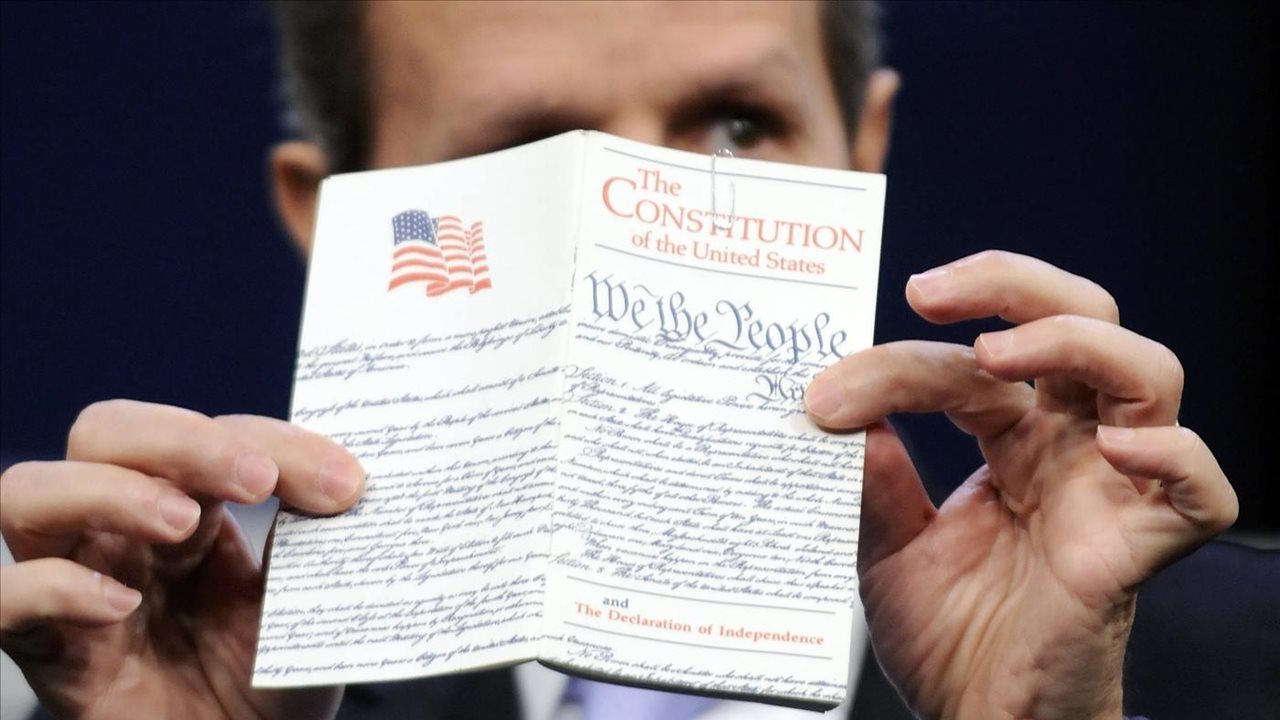By: Mike Berry – townhall.com – July 24, 2018
“Did I break the law?” That was the heart-breaking first question Konnor McKay asked us after an out-of-state group of agitators sent a bullying letter to a school district—all because McKay had shared inspirational remarks with his former high school football team.
McKay grew up in Arkansas watching Waldron High School’s football team, and he aspired to play for the Bulldogs one day. He eventually achieved his dream and has since stayed local, becoming a pastor and an important member of the community.
So, it was fitting for his old coach to invite him to speak to his former team about the values of teamwork and leadership. As a Bulldog himself, he knew the challenges those high school football players at Waldron face.
Konnor spoke of leadership; and although he is a pastor, he made only one oblique reference to Scripture in his speech. When analogizing about the importance of teamwork, he quoted Proverbs: “as iron sharpens iron, one man sharpens another.”
Those eight words were enough for the Freedom from Religion Foundation (“FFRF”) to decry a constitutional crisis. They sent a letter to the school district, complaining that the coach invited “an evangelist to preach to players” and demanding that the school district “ensure that its athletic programs will not be used to promote religion.”
Does any reasonable person really think that it violates the First Amendment to use a passage from Scripture—one that makes no reference to God—to illustrate the importance of teamwork? Of course not. But if it were up to the FFRF, schools would no longer be able to select speakers based on their ties to a school or the virtues of their message; FFRF would insist upon a religious test that religious speakers could never pass.
Such a rule of prior restraint chills the religious free exercise of the speaker. It disqualifies those whose vocations happen to be pastors, rabbis, or any form spiritual leader from public engagement, turning upside-down the constitutional imperative to protect and welcome the religious to, rather than banish them from, community engagement.
By their logic, the FFRF would insist that the government treat Konnor’s expression about the value of teamwork differently than a speech given by another former player whose vocational choice was different than McKay’s.
Of course, there was never a local complaint against Konnor. Quite to the contrary, the local community valued his message filled with humility and passion and lavished him with buckets of praise. There were even favorable articles written about his speech by the local press—something the FFRF probably only heard about in Wisconsin from an alert it setup to troll the Internet for religious speech in public.
Even though the FFRF thinks it can stick its nose in the business of this small community and bully this school district into submission, the organization does not have a legal leg to stand on. No one who heard the speech has a grievance, so FFRF is reduced to intimidating a local school district into believing that inviting a community member who happens to be a pastor to speak at a football camp of his former team is a constitutional violation.
Perhaps they would do well to remember the words of the Supreme Court of the United States. As the Justices explained in the 2000 decision ofSanta Fe Independent School District v. Doe, “The Religion Clauses of the First Amendment prevent the government from making any law respecting the establishment of religion or prohibiting the free exercise thereof. By no means do these commands impose a prohibition on all religious activity in our public schools. Indeed, the common purpose of the Religion Clauses ‘is to secure religious liberty.’”
In other words, neither the school district, nor FFRF may create religion-free zones in America.
In politically polarized times like these, you would think that one universally agreed upon value would be teamwork. The Founders designed the First Amendment to leave room for everyone. But a group whose name includes “Freedom” and “Religion” fails to recognize the beauty of living in a diverse and pluralistic society in which religion freely thrives under the First Amendment.
Rather, FFRF’s effect, intended or not, is hostility towards all religious beliefs and mention in public. Fortunately, the Waldron community courageously stands by their football coach, rejecting the empty threats of the FFRF that made Konnor, a law-abiding community leader, fearful he may have broken the law.
Superintendents of school districts nationwide should understand that the First Amendment protects, rather than disqualifies religious leaders, welcoming their community involvement and mentorship.
![]() Source: The First Amendment Protects Community Involvement of Pastors – Mike Berry
Source: The First Amendment Protects Community Involvement of Pastors – Mike Berry
 Listen Online
Listen Online Watch Online
Watch Online Find a Station in Your Area
Find a Station in Your Area









 Listen Now
Listen Now Watch Online
Watch Online
